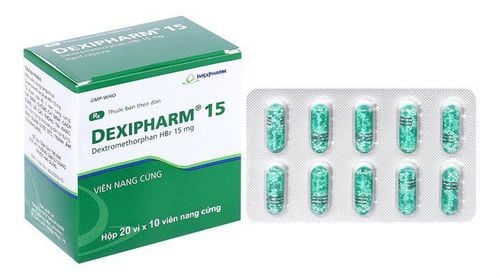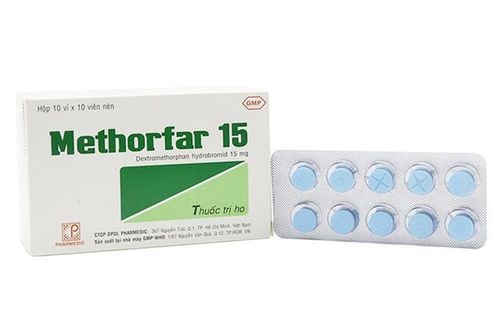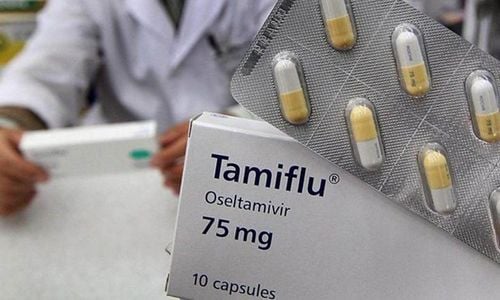This is an automatically translated article.
Dextromax medicine is indicated in the treatment of symptoms of cough with phlegm, chronic cough and cough caused by chronic bronchitis... Let's learn about the uses and notes when using Dextromax through the article below. .
1. What are the effects of Dextromax?
Dextromax medicine contains active ingredients Dextromethophan HBr 10mg and Terpin hydrate 100mg, prepared in the form of film-coated tablets. Dextromax is indicated in the following cases:
Cough due to bronchospasm; Cough caused by throat irritation from the common cold or inhaling irritants; Chronic cough and dry cough.
2. Mechanism of action
Active ingredient Terpin hydrate acts to dilute secretions through the mechanism of direct stimulation of secretory cells. This increases the secretion of bronchial secretions and facilitates the elimination of secretions through the cough reflex. The active ingredient Dextromethophan belongs to the group of cough suppressants that act on the cough center in the medulla oblongata. The drug is highly effective in the treatment of chronic cough without phlegm and is often combined with other active ingredients in the symptomatic treatment of the upper respiratory tract.
3. Dosage of the drug Dextromax
Dextromax is taken orally. Some recommendations on the dose of Dextromax are as follows:
Adults: The recommended dose is 2 tablets/time x 2-3 times/day; Children over 2 years old: Take 1-2 tablets/day divided into 2-3 times. Patients should note that the dose of Dextromax shown above is for reference only. The specific dose of the drug should be prescribed by the doctor based on the patient's condition.
4. Dextromax side effects
Dextromax medicine can cause some side effects as follows:
Common: Dizziness, fatigue, fast heart rate, nausea and skin flushing; Uncommon: Urticaria; Rare: Mild somnolence, gastrointestinal disturbances, CNS depression and respiratory depression have occurred with high doses. Patients should inform their doctor if they experience any unwanted effects during treatment with Dextromax.
5. Notes when using Dextromax
Contraindicated to use Dextromax in the following cases:
Patients are sensitive to any ingredient of Dextromax; Patients being treated with MAO inhibitors because of the risk of severe reactions such as dizziness, high fever, high blood pressure, brain bleeding and even death; Children under 2 years old. Use Dextromax with caution in the following cases:
Patients with sputum cough, chronic cough in smokers, bronchial asthma or pneumothorax; Patients at risk or suffering from respiratory disease; Dextromethorphan treatment involves histamine release, caution should be exercised in children with a history of allergy; Pregnant women, lactating women: It is not recommended to use Dextromax in these subjects unless it is necessary.
6. Drug interactions
Do not use Dextromax concurrently with MAO inhibitors. Concomitant use of Dextromax with CNS depressants may enhance the CNS depressant effects of these agents. The hepatic metabolism of dextromethorphan is impaired when co-administered with quinidine (a cytochrome P450 2D6 inhibitor), thereby increasing the serum concentration of dextromethorphan and increasing the risk of undesirable effects. Drug interactions occur that increase the risk of having effects and reduce the therapeutic effect of Dextromax. Therefore, to ensure safety and effectiveness in treatment, patients need to inform their doctor about drugs and foods that are being used. used before taking Dextromax.
Above is all information about Dextromax, patients need to carefully read the instructions for use, consult a doctor / pharmacist before using. Note, Dextromax is a prescription drug, patients absolutely must not buy and treat at home because they may experience unwanted side effects.













